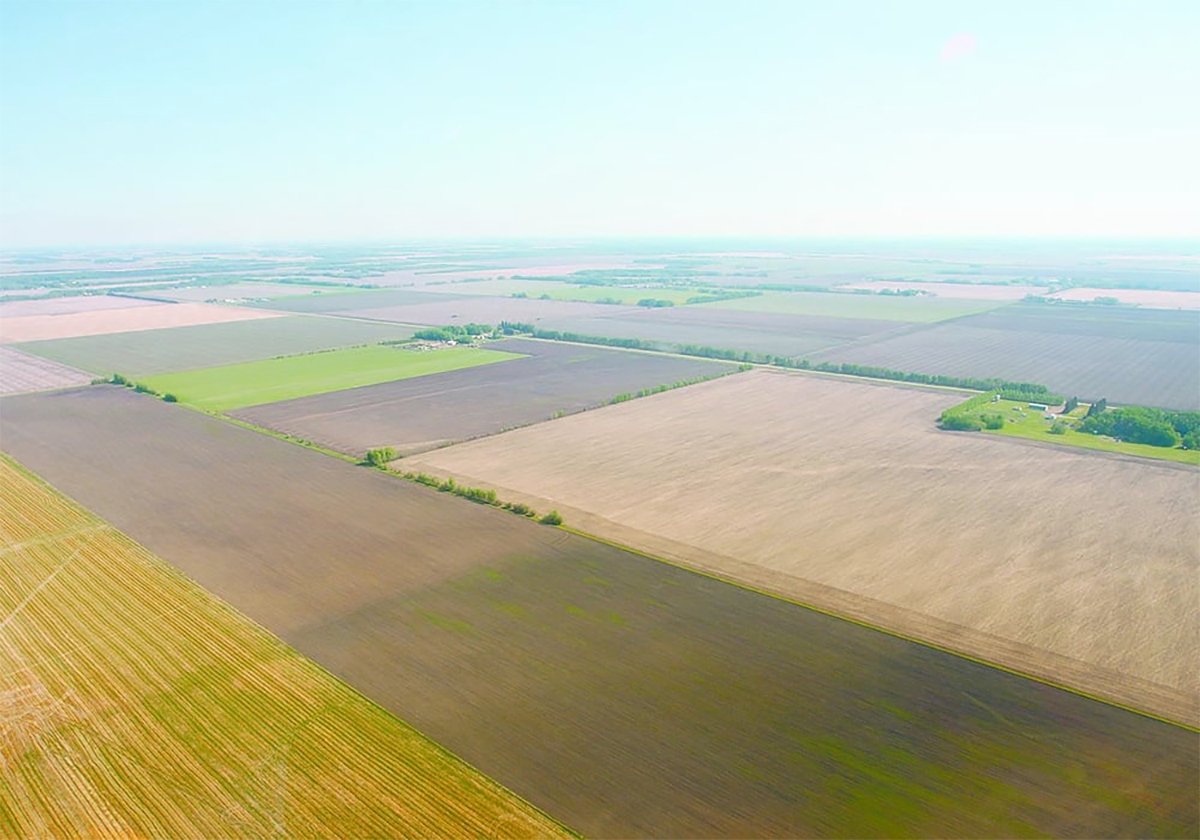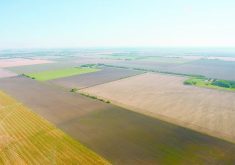Manitoba
East
- Cereal and oilseed harvest is nearly complete with 65 to 75 percent of flax combined.
- Silage corn harvest is in full swing with yields of 10 to 16 tonnes per acre.
- Soybeans are yellowing or have dropped leaves and some crops have been harvested.
- Volunteer regrowth is heavy.
Central
- Cereal harvest is largely done but canola and flax is still in the field. Flax yields are in the 20 to 25 bushels per acre range.
- Poor weather has delayed combining.
- Frosts have been reported.
- Winter wheat seeding continues with a lot of acres completed.
- Corn silage operations continue.
- Sunflowers have good yield potential.
Read Also

Saskatchewan amends farm land ownership regulations
The Canada Pension Plan Investment Board can no longer own Saskatchewan farmland.
Interlake
- Scattered showers have delayed harvest.
- Cereal harvest is complete while canola is about 90 percent complete and flax about 30 to 35 percent.
- Winter wheat seeding continues.
- Sunflowers are being desiccated.
- Pastures are fair with recent rain.
West
- Scattered showers delayed harvest and frostdamage occurred on later seeded fields.
- Cereal harvest is nearly complete in the south, 85 percent in west-central and 75 percent in the northwest.
- Yields are quite variable and below average.
- Canola harvest is 90 percent complete in the south and 50 percent in west-central and the northwest. Yields are well below long-term averages.
- Pastures are fair in the south and good in the northwest.
Saskatchewan
South
- Harvest is complete in the southwest and about 80 percent done in the southeast. Wheat, canola, durum and flax are left to combine.
- Cool, wet weather delayed combining.
- Frost reported. Yields are average to slightly below average and good quality.
- Heavy kochia and round leaf mallow reported.
- Pastures are poor.
East and west-central
- Showers have delayed harvest.
- Fifty to 75 percent of crops have been harvested with cereal yields average to below average while canola yields are quite variable and below average.
- Pulse harvest is complete with average to below average yields.
- Weather is causing staining, bleaching and sprouting damage.
- Winter wheat seeding is about 50 percent complete. Increased acreage is expected.
North
- Rain showers delayed harvest. Frost damaged late crops.
- Weather caused bleaching and staining.
- Weather damage is reported in cereals.
- About 25 to 30 percent of crops have been harvested. Yields are variable but slightly above average for most crops.
- Pastures are fair to good.
Alberta
South
- Showers delayed harvest and caused cereal bleaching. Frost reported.
- Harvest of all crops ranges from complete in the southwest to 75 percent in the northwest.
- Yields are average to above average with good quality. Light barley is common.
- Winter wheat seeding is nearly complete.
- Pastures are poor to fair.
Central
- Showers delayed harvest.
- Frost reported. Late canola damaged.
- Yields are expected to be above average.
- Haying complete and pastures are good.
North
- Showers slowed harvest. Frost reported.
- Harvest of all crops is about 40 to 50 percent completed. Yields are 35 to 50 bu. per acre for wheat, canola 25 to 40 bu. per acre, barley 50 to 75 bu. per acre and peas 30 to 45 bu. per acre.
- Heavy regrowth is reported in earlier harvested fields.
- Pastures good.
Peace River
- Scattered showers delayed harvest.
- Heavy frost reported.
- Most fields have been swathed in the north.
- Half of the canola is swathed in the south and 10 to 15 percent harvested with average yields.
Conditions as of Sept. 17
Agri-Coaches are professional, independent agronomists that are part of The Agri-Trend Network. For more information call 877-Croplan or visit www.agritrend.com.
Tips for managing aster yellows
- Seed canola crops in the fall or as early in the spring as possible.
- Try to control perennial weeds in and around crops that are susceptible to infection.
- Avoid planting near perennial forages, herbs and spices infected with aster yellows.
- Use insecticides registered for leafhopper control in canola.
















